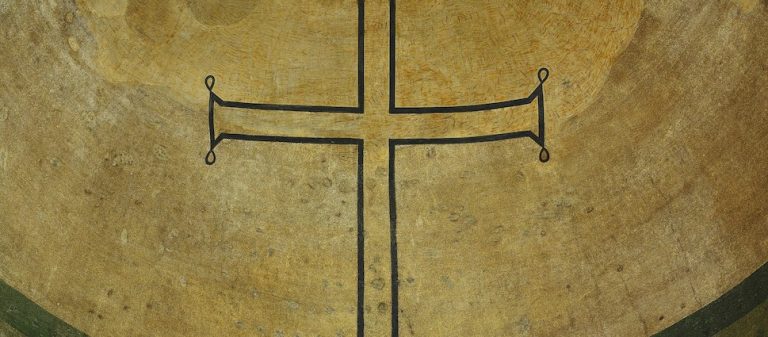
The Puritan Family
Samuel Sewall lived with his family in Puritan America between 1652 and 1730, and he suffered in ways unimaginable to us today. Over a period of 24 years, he and his wife Hannah had 14 children: his first son John died aged 17 months; his third son Hull died aged 23 months; his fourth son Henry died aged two weeks; his fifth son Stephen died aged 6 months; his third daughter Judith died aged 6 weeks; his fourth daughter Mary died following childbirth aged just 19 years; his fifth daughter Jane died at 5 weeks; his sixth daughter, Sarah, after just five weeks of life, was laid in the family tomb, and his seventh son never saw the world alive, being stillborn.
Of their 14 children, one was stillborn and seven died before they reached the age of three. Out of the 6 who survived to adulthood, only three outlived their father meaning that Samuel Sewall buried 11 out of his 14 children. In the years 1685, 1686 and 1687 Samuel buried three sons, Henry, Hull, and Steven.
In Samuel’s diary, we read of a nightmare he experienced. In it, he woke up and all of his children were dead – his nightmare nearly came true.
We also read that when his children were not actually dying, they battled with smallpox, measles, the flux, ague, colds and numerous other infections. Even though he was wealthy there was no effective treatment available for his children – they resorted to desperate measures. When one of their children could not shake off what Samuel describes as “irrepressible convulsions”, they decided based on medical advice to remove him from the home and send him to live with his grandparents. The child was so distraught that he wept uncontrollably for days and then died. Samuel was grief-stricken and could not forgive himself for the decision he had made. He had sent his little one away to his death.
This suffering is unknown to us; we cannot imagine it; just surviving required all their time, effort and energy.
So the question we must ask is: “what can such poor, backward, and needy people teach us about family life?” We have the blessings of medical expertise and provision in childbirth, technological advancements, freedom, relaxation and leisure time, educational opportunities for all, facilities, freedom, security, prosperity and ease. We do not live in craven fear that our wives will die in childbirth and we do not tremble and sweat every night at the thought that our infant children could be dead when we wake up. We expect life, luxury and provision!
Surely these Puritans are to be pitied, not copied! Surely the appropriate prayer is “Lord, thank you that we are not like them!” not “Lord help us be like them.”
Is that right? Amazing though it may seem, Puritan households were often far happier and definitely far holier than ours. For what do you find in the modern households of Britain and America?
There is division: sometimes formal and legal, often in practice and by experience. Either way, there is little harmony. In fact, in a significant number of modern homes you will only find one resident parent, and even if the parents are still together the marriage may often be hanging by a thread. This assumes, of course, that the parents were married in the first place, which is increasingly rare.
There is distress: fear, insecurity and discontentment are likely to be found. Selfishness is rife and there is no love, in fact, they have forgotten what love really is because to many it is no more than what can be seen in the Hollywood movies.
There is dysfunction: family life just doesn’t work, it is like a broken machine. Roles are not understood; responsibility is not accepted; respect is not given. Anarchy reigns.
By contrast, in the Puritan household one finds harmony, security and success—even in the very midst of the difficulties that Samuel Sewall’s family faced. How? What was their secret? If we fail even with all our advantages, how could they succeed despite their massive natural disadvantages?
Answer: They were biblical in their approach to family life.
They did not trust their own instincts or training—they looked to the word of God. When it came to practical living, they were especially keen on the Proverbs, which they viewed as heavenly wisdom for life on earth. In fact, the Puritans were an incredibly earthly lot and their concern was to live on God’s earth according to his will and plan. God’s word was their rule for all earthly life, and this included the family. They believed and followed the teaching of Proverbs 3:
“Trust in the Lord with all your heart, do not lean on your own understanding. In all your ways acknowledge him, and he will make straight your paths. Be not wise in your own eyes; fear the Lord, and turn away from evil. It will be healing to your flesh and refreshment to your bones.”
Next time, let’s consider the first of three aspects of this heavenly wisdom for family living, according to the Puritan way.
Oliver Allmand-Smith is an elder at Trinity Grace Church, Manchester, UK where he has been in pastoral ministry since 1998. He has a degree in history from Cambridge University and is a trustee of IRBS Theological Seminary in Mansfield, Texas and Trinity Pastors’ College in Nairobi, Kenya. He is married to Alison and the Lord has blessed them with six children.
Related Links
“Review: How the West Really Lost God” by D.G. Hart
“Was the Nuclear Family a Mistake?” by Justin Poythress
“Griefe O’re Doth Flow” by Ben Ciavolella
Meet the Puritans by Joel Beeke & Randall Pederson
Family Worship by Donald Whitney
























